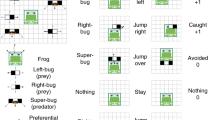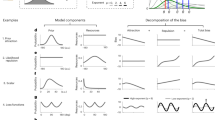Abstract
SO long as an idealist confines himself to the description of sensations and to the construction of his ideal world, he can dispense with the theory of probability, but at the cost of having to reconstruct his world with every observation that does not happen to fit his laws exactly. An idealist that does not accept the theory of probability could expect the sun to rise in the west to-morrow, and nobody believing otherwise could make the slightest contact with him such as could alter his opinion. But he has no basis for inferring new sensations without it, because an infinite number of laws can always be made to fit any finite number of data. Without some rule for selecting the most suitable laws there is no reason to prefer any one prediction to any other, whether one is an idealist or a realist.
This is a preview of subscription content, access via your institution
Access options
Subscribe to this journal
Receive 51 print issues and online access
$199.00 per year
only $3.90 per issue
Buy this article
- Purchase on Springer Link
- Instant access to full article PDF
Prices may be subject to local taxes which are calculated during checkout
Similar content being viewed by others
References
Jeffreys, "Scientific Inference", 1937.
Jeffreys, Proc. Roy. Soc., A, 162, 490 (1937).
Dingle, NATURE, 141, 21–28 (1938).
Rights and permissions
About this article
Cite this article
JEFFREYS, H. Science, Logic and Philosophy*. Nature 141, 716–719 (1938). https://doi.org/10.1038/141716a0
Published:
Issue Date:
DOI: https://doi.org/10.1038/141716a0
This article is cited by
-
Experience and convention in physical theory
Erkenntnis (1937)
Comments
By submitting a comment you agree to abide by our Terms and Community Guidelines. If you find something abusive or that does not comply with our terms or guidelines please flag it as inappropriate.



